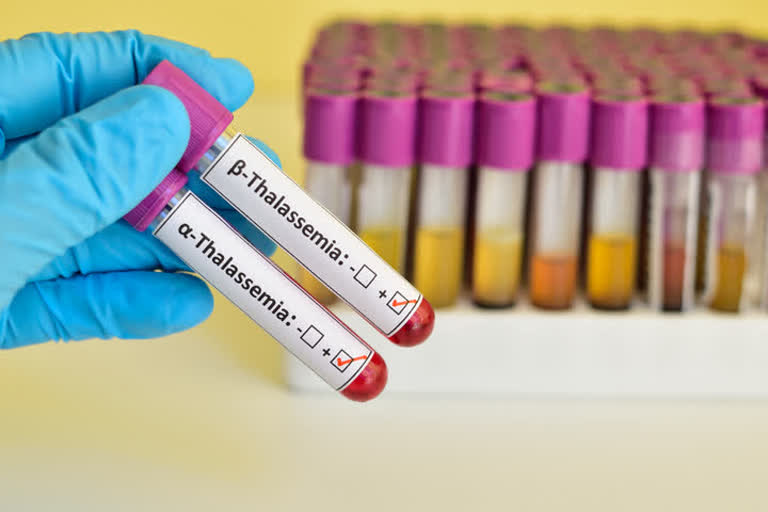Recognizing a patient of Thalassemia:
A child between 3 months to 1 year of age and have the following symptoms:
- Lethargic
- Irritable
- Not able to sleep
- Not eating
- Becoming pale
- Abdomen is distended
- Family history of Thalassemia child
- Recurrently falling sick
- Not putting on weight
Suspected cases of Thalassemia are advised specialized investigations
Can Anemia screening enable early detection of such patients?
Yes, it does. Anemia screening can detect Thalassemia carriers. In the blood picture, it shows Haemoglobin levels between 9-12gm%. Other hemogram parameters like MCV, MCH, and RDW is also tested.
Treatment:
Thalassemia children need regular blood transfusion once in 2-3 weeks lifelong. Maintaining pre-transfusion Hb 9gm%. Iron chelating drugs, daily life long after 10-15 blood transfusions/serum ferritin more than 1000ng/ml.
Need for Awareness:
Thalassemia is an inherited genetic blood disorder. Different types of thalassemia are:
- Thalassemia Major: Needs regular blood transfusion and iron-chelating drugs for life long
- Thalassemia Intermedia: It diagnosed at the age of 2 years. They need monitoring and blood transfusion as and when required.
- Thalassemia Minor: 4-5% of our population are carriers. Their Hb is 9-12gm%
Thalassemia can be prevented by creating awareness among the public to go for Thalassemia test (HbA2) estimation before marriage. If their HbA2 is more than 3.5gm% they are carriers and they should not marry another carrier. If we stop the marriage between carriers, we can prevent the birth of a child with Thalassemia major.
Blood donation is a very safe procedure anybody between 18-60 years of age, weight above 45 Kgs, Hb more than 13.5gm/dl, with no other health problems like diabetes, Thyroid, etc. can donate blood every four months. There is always a shortage of blood. The survival of Thalassemia children is only by blood transfusion.
Any dietary modification needed?
Iron-rich food should not be consumed daily. A normal diet is advised.
About Thalassemia and Sickle Cell Society
It is dedicated to ensuring the best treatment and quality of life possible for Indians suffering from Hemoglobinopathies. Based in Hyderabad, we’ve been serving those afflicted with Thalassemia for the last 22 years.
TSCS provides free consultation, blood transfusion, a periodic medical check-up for all thalassemia and sickle cell anemia patients. Counseling is given to patients, patient’s parents, and their relatives to create a better understanding of these blood disorders among them.
Our Aims and Objectives:
- To provide appropriate treatment to improve and provide quality life to patients.
- To promote prevention policies to reduce the number of newly affected births.
- To promote research activities for bringing about the latest and affordable treatment
- To reach/assist the under-privileged communities with free blood transfusion, medication, and counseling
- To provide safe/good quality blood to the patients
- To create a platform for counseling/management pre- and post- Bone Marrow Transplantation (BMT).
Role of Counselling:
Initially, parents have to be counseled about the child’s disorder, cause of the disorder, treatment, and management. They have to accept the diagnosis of the child then only they can take care. They should be counseled regarding the probability of birth of thalassemia child again and necessary investigations (prenatal diagnosis) and protocol they have to follow to prevent affected births. We encourage parents to form self-help groups to interact with each other (when they come to society for blood transfusion) to share their experiences and provide emotional and mental support to each other. Children with thalassemia need counseling after 12 years of age to address various issues with a multi-disciplinary team of Psychiatrists, Endocrinologists, Paediatricians, etc. As the age of survival increases the female patients need the guidance of a Gynaecologist and obstetrician as well.
Vigorous counseling has to be done for adolescent children especially regarding the compliance of medicine and career counseling.
Inputs from:
Dr. Suman Jain, MBBS, DCH, CEO, Thalassemia and Sickle Cell Society


